20 start with C start with C
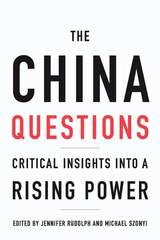
“Cuts through the cacophony of information, misinformation, and nonsense on China that circulates in our modern world to give us reliable answers to crucial questions… Should be on the shelf of anyone seeking to understand this fast-rising superpower.”
—Ian Johnson, author of The Souls of China
After years of isolation, China is now center stage as an economic and global power, but its rise has triggered wildly divergent views. Is it a model of business efficiency or a threat to American prosperity and security? Thirty-six of the world’s leading China experts from Harvard University’s renowned Fairbank Center for Chinese Studies answer key questions about this new superpower, distilling a lifetime of scholarship into short and accessible essays about Chinese politics, culture, history, economy, approach to the environment, and foreign policy. Their contributions provide essential insight into the challenges China faces, the aspirations of its people and leaders, its business climate, and the consequences of its meteoric ascent. Many books offer information about China, but few make sense of what is truly at stake.
“Impressive… A highly informative, readable collection for scholars and nonscholars alike.”
—Publishers Weekly
“Provides a more nuanced and accessible perspective on the issues China is facing.”
—South China Morning Post
“Erudite yet accessible… The topical reach is impressive.”
—Jeffrey Wasserstrom, author of China in the 21st Century
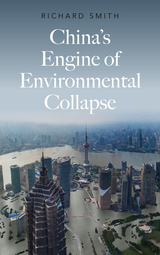
As the world hurtles towards environmental oblivion, China is leading the charge. The nation's CO2 emissions are more than twice those of the US with a GDP just two-thirds as large. China leads the world in renewable energy yet it is building new coal-fired power plants faster than renewables. The country's lakes, rivers, and farmlands are severely polluted yet China's police state can't suppress pollution, even from its own industries.
This is the first book to explain these contradictions. Richard Smith explains how the country's bureaucratic rulers are driven by nationalist-industrialist tendencies that are even more powerful than the drive for profit under 'normal' capitalism. In their race to overtake the US they must prioritise hyper-growth over the environment, even if this ends in climate collapse and eco-suicide.
Smith contends that nothing short of drastic shutdowns and the scaling back of polluting industries, especially in China and the US, will suffice to slash greenhouse gas emissions enough to prevent climate catastrophe.

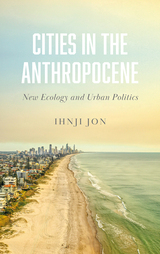
Climate change is real, and extreme weather events are its physical manifestations. These extreme events affect how we live and work in cities, and subsequently the way we design, plan, and govern them. Taking action ‘for the environment’ is not only a moral imperative; instead, it is activated by our everyday experience in the city.
Based on the author’s site visits and interviews in Darwin (Australia), Tulsa (Oklahoma), Cleveland (Ohio), and Cape Town (South Africa), this book tells the story of how cities can lead a transformative pro-environment politics.
National governments often fail to make binding agreements that bring about radical actions for the environment. This book shows how cities, as local sites of mobilizing a collective, political agenda, can be frontiers for activating the kind of environmental politics that appreciates the role of ‘nature’ in the everyday functioning of our urban life.

Climate change is real, and extreme weather events are its physical manifestations. These extreme events affect how we live and work in cities, and subsequently the way we design, plan, and govern them. Taking action ‘for the environment’ is not only a moral imperative; instead, it is activated by our everyday experience in the city.
Based on the author’s site visits and interviews in Darwin (Australia), Tulsa (Oklahoma), Cleveland (Ohio), and Cape Town (South Africa), this book tells the story of how cities can lead a transformative pro-environment politics.
National governments often fail to make binding agreements that bring about radical actions for the environment. This book shows how cities, as local sites of mobilizing a collective, political agenda, can be frontiers for activating the kind of environmental politics that appreciates the role of ‘nature’ in the everyday functioning of our urban life.
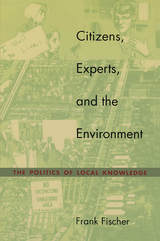
Where information ideologues see the modern increase in information as capable of making everyone smarter, others see the emergence of a society divided between those with and those without knowledge. Suggesting realistic strategies to bridge this divide, Fischer calls for meaningful nonexpert involvement in policymaking and shows how the deliberations of ordinary citizens can help solve complex social and environmental problems by contributing local contextual knowledge to the professionals’ expertise. While incorporating theoretical critiques of positivism and methodology, he also offers hard evidence to demonstrate that the ordinary citizen is capable of a great deal more participation than is generally recognized. Popular epidemiology in the United States, the Danish consensus conference, and participatory resource mapping in India serve as examples of the type of inquiry he proposes, showing how the local knowledge of citizens is invaluable to policy formation. In his conclusion Fischer examines the implications of the approach for participatory democracy and the democratization of contemporary deliberative structures.
This study will interest political scientists, public policy practitioners, sociologists, scientists, environmentalists, political activists, urban planners, and public administrators along with those interested in understanding the relationship between democracy and science in a modern technological society.

Climate Affairs sets forth in a concise primer the base of knowledge needed to begin to address questions surrounding the unknown impacts of climate change. In so doing, it outlines a new approach to understanding the interactions among climate, society, and the environment. Chapters consider:
• the effects of climate around the world
• important but overlooked aspects of climate-society-environment interactions
• examples of societal uses, misuses, and potential uses of climate-related information such as forecasts
• a research agenda, challenges, and methodologies for future climate research.
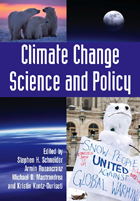
In many ways, this volume supersedes the Fourth Assessment Report of the Intergovernmental Panel on Climate Change (IPCC). Many important developments too recent to be treated by the 2007 IPCC documents are covered here. This book considers not only the IPCC report, but also results of the UN Framework Convention on Climate Change held in Bali in December 2007, as well as even more recent research data. Overall, Climate Change Science and Policy paints a direr picture of the effects of climate change than do the IPCC reports. It reveals that climate change has progressed faster than the IPCC reports anticipated and that the outlook for the future is bleaker than the IPCC reported.
In his prologue, John P. Holdren writes that the widely-used term “ global warming” is a misnomer. He suggests that a more accurate label would be “ global climatic disruption.” This volume, he states, will equip readers with all they need to know to rebut the misrepresentations being propagated by “ climate-change skeptics.” No one, he writes, will be a skeptic after reading this book.
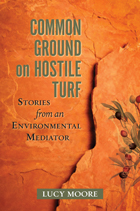
Moore has worked on wide-ranging issues—from radioactive waste storage to loss of traditional grazing lands. More importantly, she has worked with diverse groups and individuals: ranchers, environmental activists, government agencies, corporations, tribal groups, and many more. After decades spent at the negotiating table, she has learned that a case does not turn on facts, legal merit, or moral superiority. It turns on people.
Through ten memorable stories, she shows how issues of culture, personality, history, and power affect negotiations. And she illustrates that equitable solutions depend on a healthy group dynamic. Both the mediator and opposing parties must be honest, vulnerable, open, and respectful. Easier said than done, but Moore proves that subtle shifts can break the logjam and reconcile even the most fiercely warring factions.
This book should be especially appealing to anyone concerned with environmental conflicts; and also to students in environmental studies, political science, and conflict resolution, and to academics and professionals in mediation and conflict resolution fields.
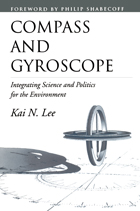
Using the Columbia River Basin in the Pacific Northwest as a case study, Kai Lee describes the concept and practice of "adaptive management," as he examines the successes and failures of past and present management experiences. Throughout the book, the author delves deeply into the theoretical framework behind the real-world experience, exploring how theories of science, politics, and cognitive psychology can be integrated into environmental management plans to increase their effectiveness.
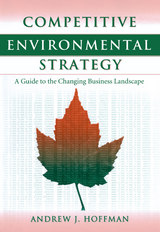
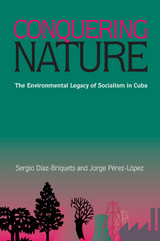
Conquering Nature provides the only book-length analysis of the environmental situation in Cuba after four decades of socialist rule, based on extensive examination of secondary sources, informed by the study of development and environmental trends in former socialist countries as well as in the developing world. It approaches the issue comprehensively and from interdisciplinary, comparative, and historical perspectives. Based on the Cuban example, Díaz-Briquets and Pérez-López challenge the concept that environmental disruption was not supposed to occur under socialism since it was alleged that guided by scientific policies, socialism could only beget environmentally benign economic development. In reality, the socialist environmental record proved to be far different from the utopian view.
Between the early 1960s and the late 1980s the environmental situation worsened despite Cuba’s achieving one of the lowest population growth rates in the world and having eliminated extreme living standard differentials in rural areas, two of the primary reasons often blamed for environmental deterioration in developing countries. The government’s approach was to “conquer nature” and under its central planning approach, it did not take local circumstances into consideration. This disregard for the environmental consequences of development projects continues to this day despite official allegations to the contrary—as the country pursues an economic survival strategy based on the crash development of the tourist sector and exploitation of natural resources. An underlying conclusion of the book is that the environmental legacy of socialism will present serious challenges to future Cuban generations.
Conquering Nature provides, for the first time, a relevant analysis of socialist environmental policies of a developing country. It will be of interest to students and scholars of Cuba and those interested in environmental issues in developing countries.
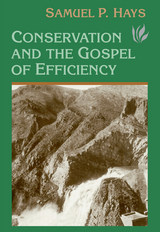
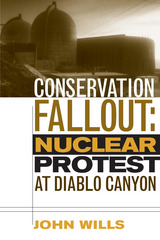
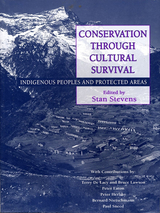
For more than a century the establishment of national parks and protected areas was a major threat to the survival of indigenous people. The creation of parks based on wilderness ideals outlawed traditional ways of life and forced from their homelands peoples who had shaped and preserved local ecosystems for centuries.
Today such tragic conflicts are being superseded by new alliances for conservation. Conservation Through Cultural Survival assesses cutting-edge efforts to establish new kinds of parks and protected areas which are based on partnerships with indigenous peoples. It chronicles new conservation thinking and the establishment around the world of indigenously inhabited protected areas, provides detailed case studies of the most important types of co-managed and indigenously managed areas, and offers guidelines, models, and recommendations for international action. The book:
- discusses the goals and development of the global protected area system
- assesses the strengths and limitations of a range of different types of indigenously inhabited protected areas
- discusses key issues and indigenous peoples' concerns
- recommends measures to promote conservation
- suggests international actions that would promote co-managed and indigenously managed areas
Conservation Through Cultural Survival will be required reading for environmentalists, protected area planners and managers, and all who care about the future of indigenous peoples and their homelands.
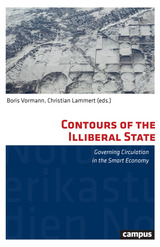

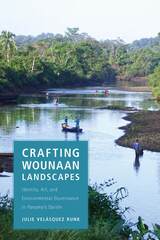
Panama’s Darién is a name many conservationists know. Renowned for its lowland tropical forests, its fame is more pronounced because a road that should be there is not: environmentalists have repeatedly, and remarkably, blocked all attempts to connect the Americas via the Pan American Highway. That lacuna, that absence of a road, also serves to occlude history in the region as its old-growth forests give the erroneous impression of a peopleless nature.
In Crafting Wounaan Landscapes, Julie Velásquez Runk upends long-standing assumptions about the people that call Darién home, and she demonstrates the agency of the Wounaan people to make their living and preserve and transform their way of life in the face of continuous and tremendous change. Velásquez Runk focuses on Wounaan crafting—how their ability to subtly effect change has granted them resilience in a dynamic and globalized era. She theorizes that unpredictable landscapes, political decisions, and cultural beliefs are responsible for environmental conservation problems, and she unpacks environmental governance efforts that illustrate what happens when conservation is confronted with people in a purportedly peopleless place.
The everyday dangers of environmental governance without local crafting include logging, land grabbing, and loss of carbon in a new era of carbon governance in the face of climate change. Crafting Wounaan Landscapes provides recognition of local ways of knowing and being in the world that may be key to the future of conservation practice.
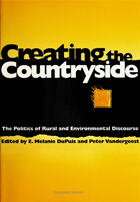
What does it mean to save nature and rural life? Do people know what they are trying to save and what they mean by "save"? As the answers to these questions become more and more unclear, so, too do the concepts of "environment," "wilderness," and "country."
From the abuse of the Amazon rain forest to how Vermont has been marketed as the ideal rural place, this collection looks at what the countryside is, should be, or can be from the perspective of people who are actively involved in such debates. Each contributor examines the underlying tendencies–and subsequent policies–that separate country from city, developed land from wilderness, and human activity from natural processes. The editors argue in their introduction that these dualistic categories limit our ability to think about environmental and rural problems and hamper our ability to formulate practical, realistic, and just solutions.
This book's interpretive approach to the natural world explores why people make artificial distinctions between nature and culture, and how people can create new forms of sustainable development in terms of real problems and real places.
In the series Conflicts in Urban and Regional Development, edited by John R. Logan and Todd Swanstrom.
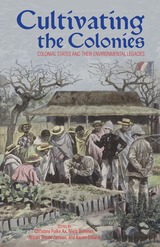
The essays collected in Cultivating the Colonies demonstrate how the relationship between colonial power and nature revealsthe nature of power. Each essay explores how colonial governments translated ideas about the management of exoticnature and foreign people into practice, and how they literally “got their hands dirty” in the business of empire.
The eleven essays include studies of animal husbandry in the Philippines, farming in Indochina, and indigenous medicine in India. They are global in scope, ranging from the Russian North to Mozambique, examining the consequences of colonialismon nature, including its impact on animals, fisheries, farmlands, medical practices, and even the diets of indigenouspeople.
Cultivating the Colonies establishes beyond all possible doubt the importance of the environment as a locus for studyingthe power of the colonial state.
READERS
Browse our collection.
PUBLISHERS
See BiblioVault's publisher services.
STUDENT SERVICES
Files for college accessibility offices.
UChicago Accessibility Resources
home | accessibility | search | about | contact us
BiblioVault ® 2001 - 2024
The University of Chicago Press









